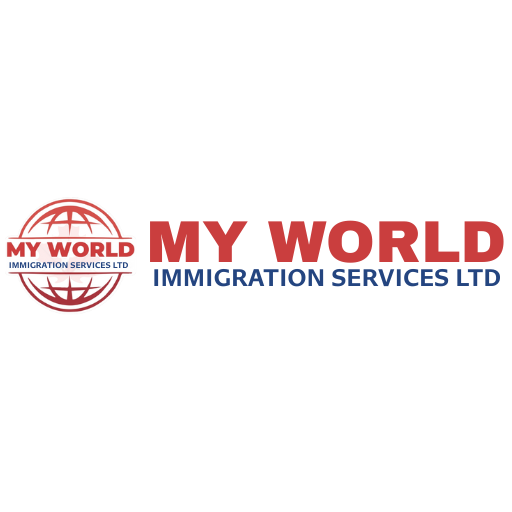
October 6, 2025
Imagine you’re visiting a friend for the weekend. They’re excited to have you — but they’d feel a lot better knowing you’re not secretly planning to move in forever, right?
That’s exactly how Canadian immigration officers think when reviewing your Temporary Resident Visa (TRV) — also known as a visitor visa. They’re happy to welcome you, but only if they’re confident you’ll return home after your visit.
And how do you prove that? With something called proof of ties to your home country.
What Are “Ties to Your Home Country”?
Your ties are the personal, financial, and professional connections that keep you rooted where you currently live — the reasons that make you want (or need) to return home after your trip to Canada.
Think of them as invisible anchors to your everyday life:
- Your job or business
- Your family
- Your property or assets
- Your financial responsibilities
- Your social or community involvement
These are the clues that tell an immigration officer:
“I’m just visiting. I have every reason to go back home.”
Top Documents That Prove Strong Home Country Ties
Here’s how you can turn your real-life commitments into strong supporting evidence for your visa application.
1. Employment or Business Documents
Your career or business is one of the strongest signals that you intend to return.
Recommended documents:
- Employment letter confirming job title, salary, and approved vacation dates
- Recent pay stubs (last 3–6 months)
- Employment contract or company ID
- Business registration, tax returns, or invoices (for self-employed applicants)
Why it works:
Officers see that you have stable employment or an ongoing business waiting for you back home.
2. Family Ties
Family is not just emotional proof — it’s legal and social evidence that you’re connected to your home country.
Recommended documents:
- Marriage certificate or proof of spouse’s residence
- Children’s school enrollment or daycare records
- Medical reports if caring for elderly or dependent family members
- Letters from family confirming your relationship and return plans
Why it works:
Officers are more likely to trust that applicants with family obligations will return home after their trip.
3. Property and Housing
Owning or renting property in your home country demonstrates stability and intention to return.
Recommended documents:
- Property ownership documents or title deeds
- Mortgage or loan statements
- Long-term rental or lease agreements
- Utility bills in your name
Why it works:
Permanent assets show that your life is established elsewhere — not in Canada.
4. Financial Ties
Your financial setup tells IRCC where your life is truly based.
Recommended documents:
- Bank statements with consistent income and expenses
- Investment or pension accounts
- Tax returns for the last 1–2 years
- Proof of ongoing loans or credit responsibilities
Why it works:
Stable finances rooted in your home country make you a low-risk traveler.
5. Social and Community Commitments
Even non-financial connections matter — your community ties show a life worth returning to.
Recommended documents:
- Letters from local leaders or organizations
- Proof of community service, volunteering, or memberships
- Invitations to future family or religious events (weddings, festivals, etc.)
Why it works:
When your local community relies on you, officers see a strong motivation to come back.
Make It Personal — Not Just Paper
Documents matter, but so does your personal story.
Include a short cover letter or explanation that:
- States the purpose of your visit
- Lists your travel dates
- Explains your home responsibilities and reasons for returning
Example:
“I plan to visit my cousin in Toronto for two weeks and explore Banff National Park. I must return by August 15, as my daughter starts school and I am expected back at work.”
This adds a human touch and makes your case more relatable.
Why Proof of Ties Matters So Much
The #1 reason visitor visas are refused?
Lack of convincing proof that you’ll leave Canada at the end of your stay.
Even with strong finances and a perfect travel plan, weak home ties can lead to refusal under Section 179(b) of the Immigration and Refugee Protection Regulations (IRPR).
Submitting clear, consistent, and credible evidence of your ties greatly increases your approval chances.
Need Help Preparing a Strong Visitor Visa Application?
At MyWorld Immigration, we help applicants from India, Nigeria, Pakistan, the Philippines, and beyond prepare foolproof TRV applications with properly documented home ties.
Our experts assist you with:
- Identifying the best documents to prove your home ties
- Writing persuasive cover letters for visa officers
- Reviewing your entire application before submission
- Reapplying after a previous refusal under Section 179(b)
Contact MyWorld Immigration
Let us help you build a strong, refusal-proof visitor visa application.
WhatsApp: +1-672-399-0000
Website: www.myworldimmigration.com
Email: info@myworldimmigration.com
Instagram: @myworldimmigration
Visiting Canada shouldn’t be stressful.
You’ve got the dream — we’ve got the strategy.
Whether you’re traveling for tourism, family, or business, MyWorld Immigration ensures your application tells a confident, convincing story of your return home.
